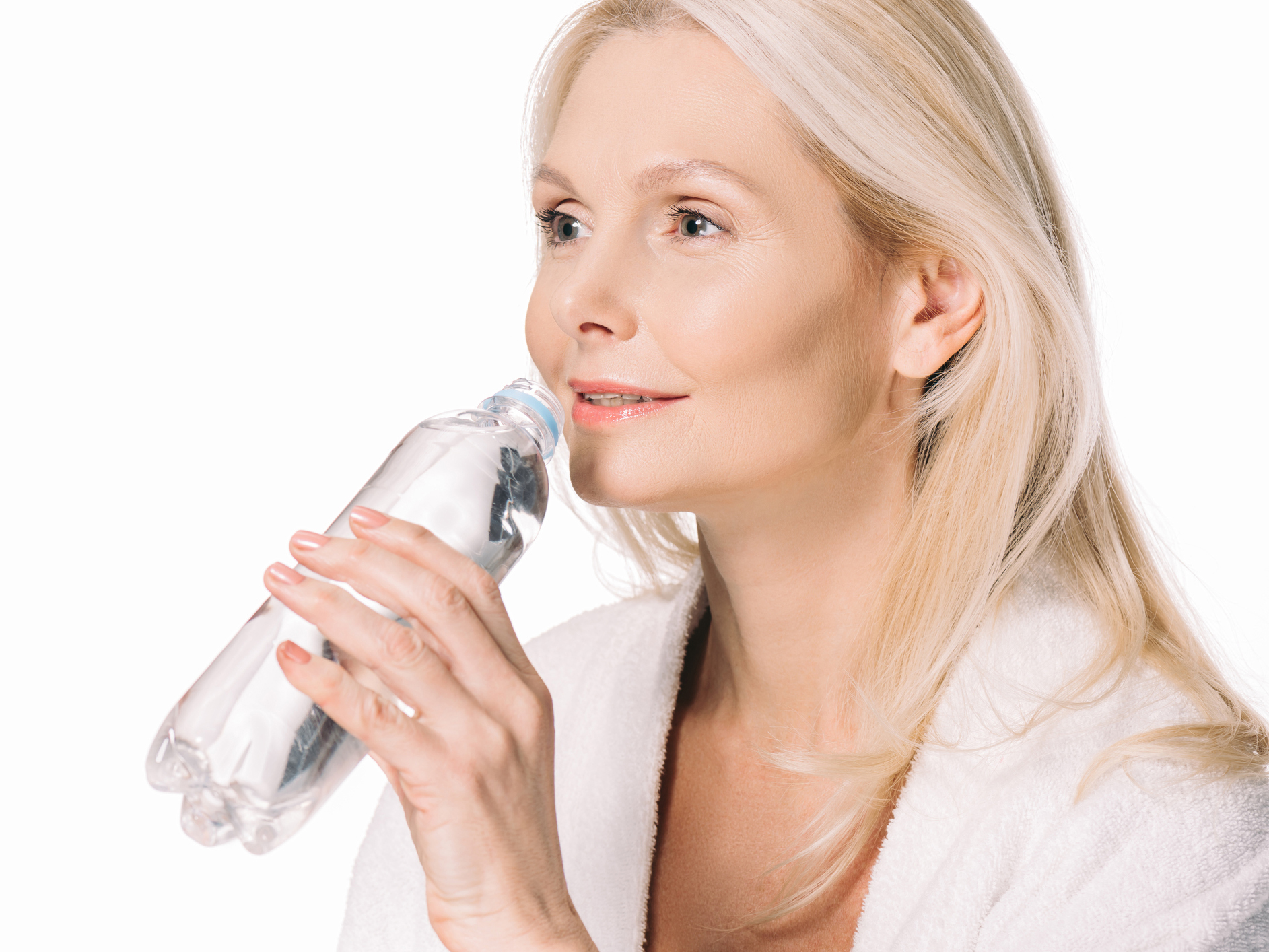Get Easy Health Digest™ in your inbox and don’t miss a thing when you subscribe today. Plus, get the free bonus report, Mother Nature’s Tips, Tricks and Remedies for Cholesterol, Blood Pressure & Blood Sugar as my way of saying welcome to the community!
7 reasons mineral water is the real ‘vitamin’ water

Have you been fooled by the trend towards ‘vitamin’ waters?
I hope not because even if some of those marketed as health drinks contain a scant 0.5 percent of vitamins and minerals, as they claim, they also contain a boatload of crystalline fructose — an artificial sweetener even more processed than HFCS, the stuff that increases you risk for heart disease and diabetes.
Instead you should reach for a bottle of an original that’s practically part supplement, part water — naturally…
Mineral water
Mineral water comes from a mineral spring and contains (you guessed it) minerals! Getting sufficient amounts of minerals can sometimes be a little harder than keeping your vitamin levels healthy (unless you’re acutely mindful of everything you put in your mouth!). I recently ran across an article on the top 7 nutrient deficiencies and 4 of those were minerals. Who knew?
That’s all the more reason to grab a glass bottle of mineral water.
The mineral content of your water will vary depending on where it comes from. For example, the San Pellegrino brand (sourced from springs in the namesake Italian town) claims to have some of the highest sulfate levels. So if you don’t eat enough sulfur vegetables, like broccoli, it could help you meet your quota.
And, like anything, some brands of mineral water are higher quality than others. But, for the most part, you can guarantee any bottle of mineral water you purchase will contain some combination of these health-boosting minerals:
- Calcium
- Magnesium
- Sodium
- Bicarbonate
- Potassium
- Chloride
- Sulfate
- Silica
Because it contains these minerals, it can do wonders for your health. Some of the benefits you’ll experience from drinking mineral water are:
- Improved bone health thanks to the high calcium content.
- Better muscle and nerve function because of the magnesium content.
- Lower blood pressure because of magnesium once again. In one study, people were able to lower their blood pressure by drinking 1 liter of mineral water per day.
- A reduced risk of kidney stones because calcium and magnesium can lower your body’s concentration of calcium oxalate. High levels of calcium oxalate lead to kidney stones.
- A better electrolyte balance. Mineral water restores the electrolytes sodium, chloride, potassium, magnesium, calcium and bicarbonate.
- Enhanced digestion because of bicarbonate and sulfate. Bicarbonate prevents acid reflux by balancing pH levels in your gut. Sulfates encourage your body to release digestive enzymes like amylases, proteases and lipases that help you digest your food.
- Healthier skin from silica. Silica can actually strengthen skin cells and prevent wrinkles. Some people even apply mineral water to their face with cotton balls to improve their skin. But drinking it will do the trick too. Silica also improves hair and nail health.
Ready run to the closest grocery store and buy a bottle? You definitely should. But don’t just go out willy-nilly and pick up the first bottle of mineral water you see. Follow these tips to make sure you get the best and healthiest mineral water for your money:
- Choose a brand packaged in a glass bottle to avoid BPA leaching.
- Always read the label. Different mineral waters contain different minerals and varying levels of each mineral. Choose the one that’s right for you and your health goals. Two high-quality mineral waters available in most stores are Gerolsteiner and San Pellegrino.
- Beware of high sodium levels. Some brands of mineral water have extremely high sodium levels like Vichy Catalan mineral water from Spain, which contains a whopping 1,070 mg of sodium per liter.
- Avoid artificially flavored or sweetened mineral waters.
Just to be clear, I don’t recommend you only drink mineral water. Continue drinking regular, filtered water too. But mineral water is a great addition to your daily hydration regimen. You can drink it still or sparkling and add a slice of lime or lemon for a little extra flavor.
Sources:
- “EWG’s Bottled Water Scorecard, 2011.” Environmental Working Group. http://www.ewg.org. Retrieved September 7, 2016.
- “Benefits of Mineral Water.” New Health Guide. http://www.newhealthguide.org. Retrieved September 7, 2016.
- “Influence of a mineral water rich in calcium, magnesium and bicarbonate on urine composition and the risk of calcium oxalate crystallization.” European Journal of Clinical Nutrition. 2004 Feb;58(2):270-6.
- “Minerals for Your Body.” Gerolsteiner. http://www.gerolsteiner-usa.com. Retrieved September 7, 2016.
- “Nutritional components of Vichy Catalan.” Vichy Catalan. http://www.vichy-catalan.com.au. Retrieved September 7, 2016.












